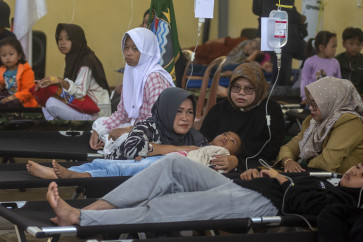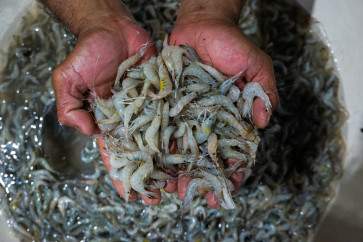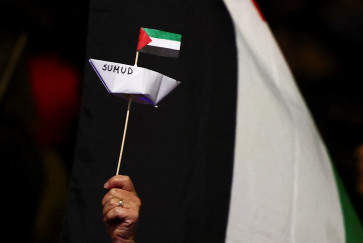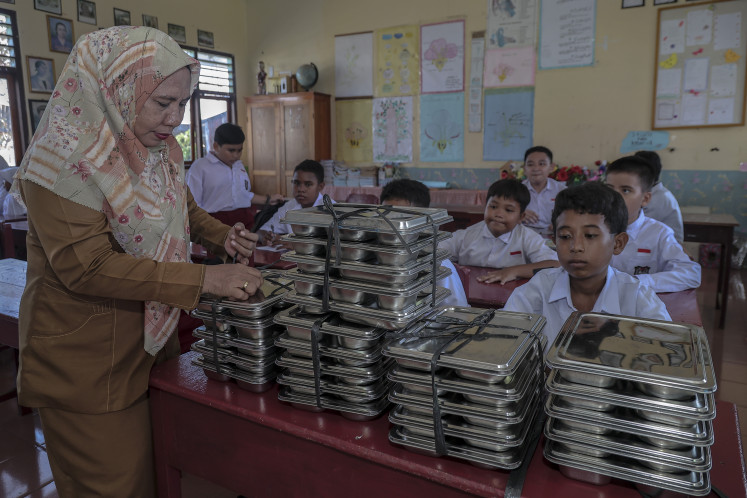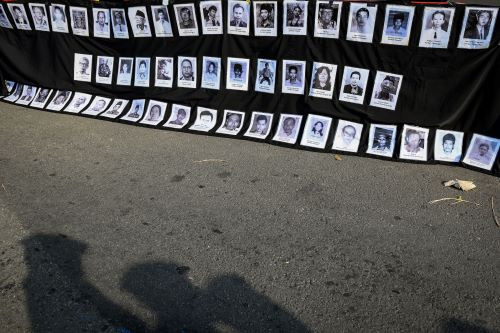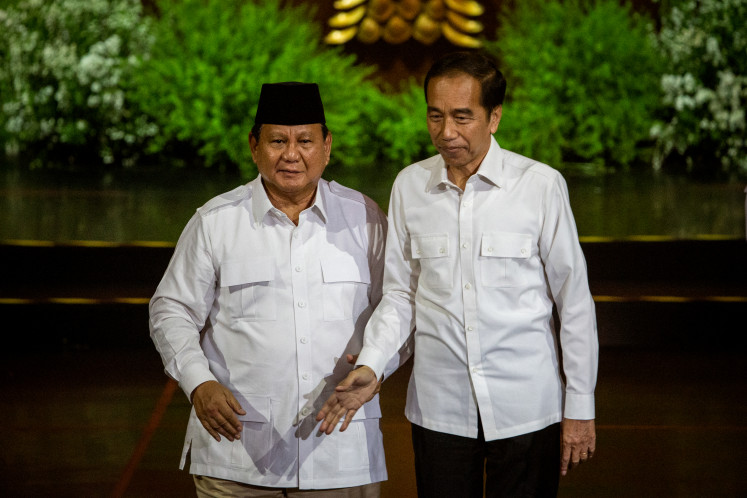Popular Reads
Top Results
Can't find what you're looking for?
View all search resultsPopular Reads
Top Results
Can't find what you're looking for?
View all search resultsIncheon aims to foster legacy for Asia's sport development
Incheon is the third city in Korea to hold the Asian Games
Change text size
Gift Premium Articles
to Anyone
I
ncheon is the third city in Korea to hold the Asian Games. With the motto 'Diversity Shines Here', the Incheon Asian Games Organizing Committee (IAGOC) attempt to make it successful event and create a legacy for the betterment of Asian sports in the future. In an interview with The Jakarta Post's Musthofid, IAGOC President Kim Young-soo also said IAGOC was ready to extend assistance to Jakarta as the 2018 host. The following are excerpts from the interview:
Question: The Asian Games motto is, 'Diversity Shines Here'. What message does the Asian Games want to send to the world?
Answer: The IAGOC has been trying to hold a festive event, not only for sports competitions but for building peace for 4.5 billion Asians. 'Diversity Shines Here' means that Asian countries with diverse ethnic backgrounds, religions and cultures unify in Incheon through mutual communication and reconciliation to build a bright future.
What does it mean for Incheon to host the 3rd Asian Games in Korea?
The first Asian Games in 1986 took a critical role as a test run prior to the Seoul Olympic in order to hold the event in 1988 successfully. The Busan Asian Games in 2002 increased the awareness of the city internationally and lifted up the quality of Busan. I think that there also has been a great leap in momentum with Incheon hosting the Asian Games.
Our goals through hosting the Games in Incheon are to upgrade the standard of living of the city and take a solid position as a highly advanced global city. I expect that Incheon citizens will grow as globalized citizens, while Incheon will become one of the most popular cities to visit and live in in the world.
What about the budget you put aside in preparing the Games?
The budget for the whole operation of the Incheon Asian Games has been reduced to 480 billion Korean won, which is 60 billion won less than the initial budget. It is true that the IAGOC has been struggling to manage with the lower budget. However, unlike the previous Asian Games that showed off their national power, the IAGOC has been trying to run the games successfully with efficiency and innovation.
How did you mobilize the citizens and what did you tell them to make the games a success?
First of all, the IAGOC has been trying to raise awareness of the value and benefits of hosting the games to the citizens and encourage them to participate in the events. Due to the successful histories of the two previous Asian Games in Seoul and Busan, we had a significant response from the citizens.
It was very helpful to promote public relations and marketing through social media, which utilizes state-of-the-art technology and operates SNS channels in 11 languages, including Korean, English, and Chinese.
Political tensions flared up in the lead up to the Asian Games, such as the cancelation by North Korea to send its cheerleaders squad and the ban of the hoisting of the North Korean flag. How do you see this issue?
The IAGOC set up the task force for inter-Korean cooperation in August last year in order to prepare for North Korea's participation and has been thoroughly preparing for all aspects of welcoming them, such as immigration, security, transportation, lodging and other things.
North Korea's participation made the 17th Asian Games 'perfect games' because all 45 members of the Olympic council of Asia are participating. The only thing that could have made it even better is that the participation of the North Korean cheerleading delegation.
Regarding the ban against hoisting North Korea's flag, the IAGOC has made the decision based on the comprehensive consideration of the Korean government, which also follows the rule of the International Olympic Committee and the Olympic Council of Asia to prohibit sports from being utilized as the tool of politics. However, we are thrilled to share the joy of the North Korean athletes' participation and good results, such as setting world records in weightlifting, and I think it is a good sign that Koreans enthusiastically cheer for the North Korean athletes and support them. I believe that participating in sporting events with each other can improve inter-Korean relations.
It seems that the 17th Asian Games will see again the top three finishers ' China, Korea and Japan ' pull away in the medal collection. What should OCA do to bridge the gap between the East Asian countries and the rest of the continent?
The IAGOC has been running the 'Vision 2014' program, which has been initiated to make a balanced development of sports across Asia and share the joy of standing in the victory ceremony, since Incheon has been chosen as the hosting city of the 2014 Asian Games.
The IAGOC has offered off-season training of sports delegations, dispatched coaches, and supported sports equipment to underdeveloped countries, such as Timor Leste, Maldives and Bhutan that haven't earned medals yet, so that all participating countries win at least one medal
I believe that it'll contribute in the progression of Asian sports if the Olympic Council of Asia continues to develop various programs, such as the 'Vision 2014' program, in order to support underdeveloped countries.
Indonesia will host the next Asian Games in 2018. What do you think ' based on your experience in holding the Asian Games ' the government should do to capitalize on the occasion for a long-term benefit for the nation?
First of all, I congratulate Jakarta on being the host city of the 18th Asian Games, which will be held in 2018. It is hard to comment on whether the governmental investment is appropriate or not because my knowledge about the political, economical and social situation of Indonesia is limited.
Nonetheless, if I present my opinion based on the experience of Korea, I would say that the host city will make an improvement of overall infrastructure and become confident to grow as a global city only if Jakarta is able to hold large sporting events, such as the Asian Games. I wish that the tangible and intangible legacy of the 2014 Incheon Asian Games will help Indonesia present the next Asian Games. The IAGOC will provide all possible support for the success of the 18th Asian Games.


